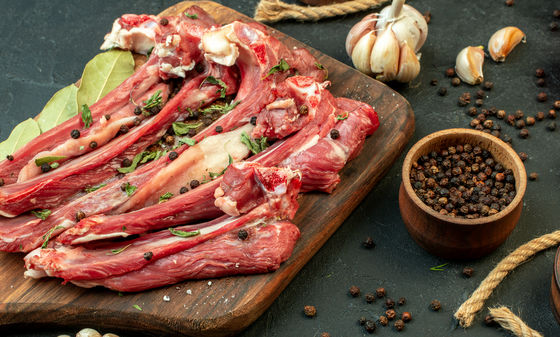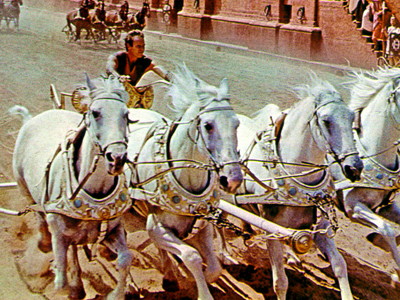What was the training, diet, and sex like in the ancient Olympics?

Wrestling with bulls, meat-only diets and sex bans: how the ancient Olympians prepared
https://theconversation.com/wrestling-with-bulls-meat-only-diets-and-sex-bans-how-the-ancient-olympians-prepared-235522

According to Constantine Panegyres, a researcher of Greek and Roman ancient history at the University of Melbourne in Australia, athletes in the ancient Olympics would have had very busy schedules. The reason for this is that just as there are international competitions for each sport and festivals such as the World Cup in addition to the Olympics in modern times, there were three other competitions in addition to the ancient Olympics, which was the largest festival at the time. The Pythian Games , held every four years, the Nemean Games and the Isthmian Games, held every two years, and the ancient Olympics are called the 'four major games.'
The four major games had different prestige, for example, the Isthmian Games were held in the same spring as the Pythian Games and the ancient Olympic Games, and were treated as preparation for the more important games. On the other hand, the idea that all the games were important was also deeply rooted, with the four games being called a ' periodos ' (circuit) and winning all the games in a row being recognized as a great achievement, 'periodonices,' Panegires points out.

Winners of each tournament receive fame and, depending on the tournament, rewards, and even greater fame if they become the Periodontice. For this reason, it is recorded that athletes aiming to win the tournaments engaged in various training methods, even in ancient times when technology and knowledge were not widespread.
There are other recorded instances of people using bull-lifting exercises to train: the 4th century BC historian Eusebius wrote that Amesinas, the Olympic wrestling champion of 460 BC, trained by wrestling bulls while keeping cattle, and even brought a bull to Olympia as a training partner.
In order to build a strong body, not only training but also a proper and sufficient diet is important. Chionis, a Spartan athlete from the mid-7th century BC, won the Ancient Olympic Games seven times. According to the 2nd century geographer Pausanias , Chionis incorporated dried figs into his diet to build his body.
There are also records of many ancient athletes who built their bodies by eating meat. For example, there are records of Eurymenes, a 6th century BC athlete, and Dromeus, a 5th century BC athlete who won the ancient Olympic Games, preferring a diet of only meat. Furthermore, Athenaeus wrote, 'A certain athlete, who lived before the 2nd century BC, overpowered all his opponents while eating nothing but goat meat. The athlete's sweat smelled bad, so people mocked him.'

It has often been pointed out that sexual promiscuity tends to occur in Olympic villages, and that athletes have sex with each other. It has also been revealed that about 300,000 condoms will be prepared in the Olympic village at the Paris Olympics, which will be held from July 26, 2024. However, it seems that many ancient Olympic athletes believed that refraining from sexual activity would lead to an advantage on the field. In his ' Laws ,' Plato states that 'Ikos, an athlete who won the Olympic Games in 476 BC, believed that abstaining from sexual activity was one of the reasons for his success, and during his training period he never touched a boy, let alone a woman.' In addition, Panegirès points out that there were several other athletes who placed importance on refraining from sexual activity, such as Asturus, a three-time winner in track and field, and Chrysson, another three-time winner in track and field.
In the modern Olympics, athletes and officials from each country gather in a place called the Athletes' Village, where they eat, sleep, and socialize. In the ancient Olympics, athletes had to stay in Elis , a region of Olympia, the city where the first ancient Olympic Games were held, for a month before the event to prepare. In Elis, the ' Heranodikai ,' wearing purple robes and carrying sticks to punish athletes who broke the rules, kept a close watch on training standards and rule violations during each competition.
The ancient Olympics, which began around the 8th century BC, initially only had a track and field event called the 'stadion,' which involved running about 200 meters in a straight line, but over the centuries the number of events increased to include long-distance running, wrestling, chariot races, and more. Research at the time of writing suggests that the ancient Olympics ended mainly due to the destruction of the Temple of Zeus at Olympia by fire during the reign of Roman Emperor Theodosius II. The Olympics were not revived until 1896, but in both the ancient Olympics and the revived modern Olympics, athletes underwent rigorous training and intensive dietary management, many spectators watched the events, and winners gained great fame.
Related Posts:
in Note, Posted by log1e_dh







